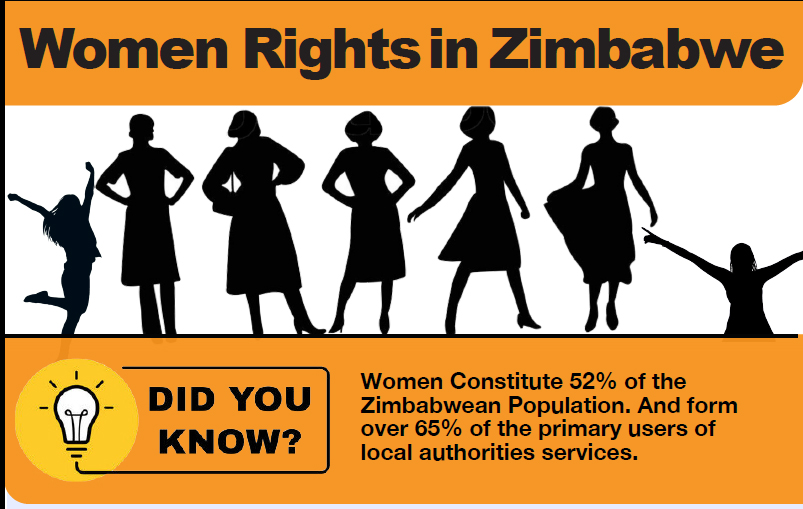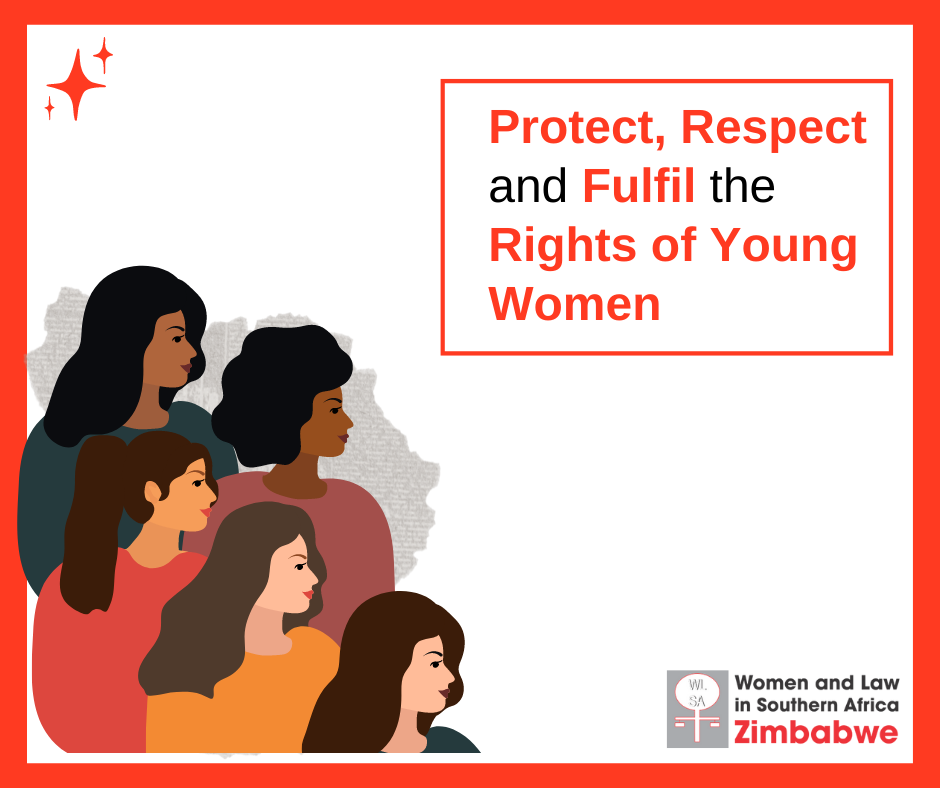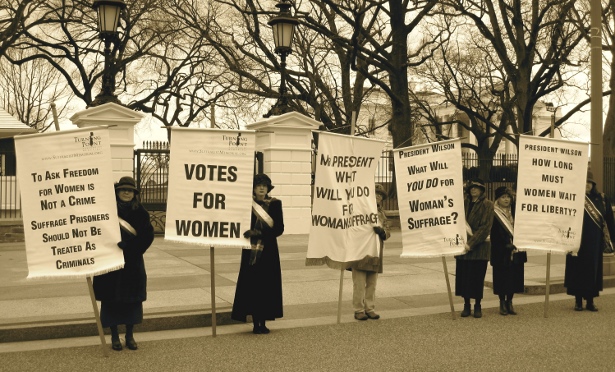Laws of Womens In Zimbabwe
Zimbabwe has a male centric, cultural framework that frequently persecutes ladies in both the home and the working environment. Society anticipates that these ladies should follow customary, orientation jobs. Consequently, consolation for ladies to seek after vocations in legislative issues or other places of power is scant.
Zimbabwe previously had an objective of “half portrayal of ladies in all dynamic bodies by 2015,” as ladies are significantly underrepresented in government. Be that as it may, the nation has not met these portions. Ladies who report a political mission are frequently met with badgering, dangers and different demonstrations of savagery. These tensions deter ladies from running and even power some to end their missions, by and large.
One association that endeavors to battle this issue is the Ladies in Legislative issues Backing Unit (WiPSU). Its principal objective is to prepare and enable ladies in Zimbabwe to campaign for office effectively. To do as such, WiPSU gives initiative improvement studios and different assets, as well collectively of steady ladies to remain adjacent to each other. This drive has made effective missions and expanded open doors for ladies.
Law

Zimbabwe has a crossover general set of laws made out of legal and standard regulation. While legal regulation will in general adjust to CEDAW, biased standard regulations keep on applying, particularly in country regions.
The law perceives three kinds of marriage: common marriage, enlisted standard marriage and unregistered standard marriage. The transcendence of enlisted and unregistered standard relationships adds to the weakness of ladies inside the family:
Early and constrained relationships under standard regulation are far reaching. In 2004, the Assembled Countries assessed that 23% of young ladies somewhere in the range of 15 and 19 years were hitched, separated or bereft.
In spite of the fact that polygamy is restricted under legal regulation, it is approved under standard regulation and keeps on being rehearsed in provincial regions.
While common marriage awards mates equivalent freedoms to parental power, under standard marriage men reserve the option to guardianship of kids.
The custom of the lady cost (lobola), which is approved under legal regulation, likewise adds to ladies’ weakness inside the family.
Under the principles of standard marriage, widows can’t acquire their better half’s property and little girls can acquire from their dad provided that there are no children.
By and by
Savagery
Regardless of the reception of regulation, including the Abusive behavior at home Demonstration 2007 and changes to the Criminal Regulation Demonstration in 2006, brutality against ladies, especially aggressive behavior at home, stays boundless and culprits keep on profiting from exemption. The absence of preparing of policing, the absence of familiarity with ladies’ common liberties, the apprehension about friendly shame and response add to the inadequacy of such regulations. Since the criminalisation of conjugal assault, just a single instance of conjugal assaulted has been investigated in court.
Ladies’ property and use privileges in private regulations
In the country’s overall set of laws, Roman-Dutch regulation, standard regulation and new regulation work one next to the other. This is reflected in a majority of marriage frameworks, halfway directed by standard regulations that were created by the frontier legitimate organizations, and mostly by common regulation. Area 23 of the Constitution gives priority to standard regulation in the field of marriage and legacy. This has attempted to safeguard male honors according to property (17).
There are three sorts of relationships in the nation: enlisted standard marriage which is possibly polygamous; common marriage under the Marriage Act which is monogamous; and unregistered standard regulation associations which are perceived exclusively for restricted purposes like upkeep of the youngster and legacy.
The Wedding Causes Demonstration of 1985:
- Manages division of property upon separate from in an enrolled marriage. It considers an evenhanded circulation of wedding property between mates upon separate. Immediate and aberrant commitment of the companions to the marital property is considered in the choice on division of property (7).
- Doesn’t matter to unregistered standard regulation relationships. While this kind of marriage might be perceived by the gatherings and society as a legitimate marriage, the law for the most part doesn’t consider it substantial, with the exception of specific explicit reasons for African regulation and custom connecting with the status, guardianship, care and freedoms of progression of the kids. Accordingly, ladies’ progression has been hampered, particularly taking into account that 80% of ladies live in country regions, wed under standard regulation and don’t enroll their relationships, primarily due to obliviousness of the presence of the legitimate necessity for enlistment of relationships or obliviousness of the ramifications of non-enrollment (7).
The Marital Causes Correction Demonstration of 1987: - Corrects the Wedding Makes Act broaden the reason for separate relevant to common union with relationships solemnized as far as the African Relationships Act; and to extend the powers of the court to make a division of resources upon separate by approving it to make considerable and supplemental arrangements important to give full impact to any request it makes; and to permit the court to make a request connecting with the property of some life partner that is held by someone else and in this way request that individual to move the property as the court coordinates (20).
The African Relationships Demonstration of 1951: - Applies to relationships contracted simply by African Zimbabweans and is represented by standard regulation.
The Standard Relationships Demonstration of 1951, revised 2001:
- Under the Demonstration, relationships contracted by standard regulation on or after 1 February 1918 and before 1 January 1951 which were not enrolled under the 1939 Local Relationships Act are viewed as substantial relationships.
- Accommodates the “solemnization” of standard relationships by a standard marriage official of the region in which the lady or her watchman lives. Standard relationships are not substantial except if solemnized.
- A marriage contracted by standard regulation which is definitely not a substantial marriage as far as this Act is viewed as a legitimate marriage for the motivations behind standard regulation and custom connecting with the status, guardianship, care and privileges of progression of the offspring of such marriage.
- After the function, the marriage should be enrolled in a marriage register. Any individual utilized by the State or a nearby power or any boss might be named by the Priest to be a standard marriage official for the reasons for this Demonstration (21).
The Standard Regulation and Neighborhood Courts Demonstration of 1990: - Accommodates the utilization of standard regulation in common cases and for the constitution and purview of nearby courts.
- In the use of standard regulation, the interests of youngsters are central in any authority or guardianship case, regardless of which regulation or chief is applied.
- Polygamous relationships are to be perceived in common cases assuming that the marriage was contracted by standard regulation.
- Standard regulation that applies to the restriction of relationships between individuals due to their relationship by blood or partiality will, in situations where standard regulation is relevant, beat the overall regulation. In any case, on the off chance that a marriage is to be contracted under the Marriage Act, the overall regulation will beat standard regulation. In the event that a legal dispute emerges wherein standard regulation is pertinent, however the gatherings are associated with various frameworks of standard regulation, the court will apply the most intently relevant arrangement of standard regulation to the case. The court might look for master guidance in such cases.
- The ward of neighborhood courts or common cases in which standard regulation is relevant applies when the litigant is regularly an occupant inside the purview of the court, the reason for activity emerged inside the locale of the court and the respondent consents to the locale of the court.
- Among the cases in which a neighborhood court will have no purview are those looking to break down a marriage, except if the marriage, albeit perceived by standard regulation, has not been solemnized by the conditions of the African Relationships Act. Neighborhood courts may not decide the care or guardianship of a minor or the obligation of any individual to keep up with another (20).
Impediments to admittance to business and navigation
Ladies in Zimbabwe by and large have lower earnings and less employer stability than men. Most ladies are utilized in the horticulture, ranger service, cultivating ventures and the homegrown area, in which compensations will more often than not be low.
Ladies remain underrepresented in dynamic positions. In spite of sanction of the South African Improvement People group (SADC) Convention on Orientation and Advancement, which sets an objective of half portrayal of ladies in all decisionmaking bodies by 2015, ladies are ineffectively addressed in the public authority of public association of Zimbabwe. Just 4 ladies were assigned among the 35 individuals from the new government. Following the 2008 races, ladies addressed 15% of individuals from the lower Place of Parliament and 24% of the upper House.
Zimbabwe separate from regulation spikes ladies’ battle for property
Like most relationships in the country’s rustic regions, Tshuma’s had been a standard, unregistered association in which all that she brought to the marriage was viewed as her better half’s property, the mother of two told the Thomson Reuters Establishment.
In a nation where ladies are to a great extent treated as wards of men, a decision by Zimbabwe’s High Court in June that qualifies wedded couples for an equivalent portion of their property upon separate was hailed as memorable by ladies’ privileges advocates.
Presently, they are empowering ladies – particularly in rustic regions – to enroll their relationships and attempting to spread mindfulness about the new regulation, to handle what is viewed as by a larger number of people as one of the fundamental boundaries to ladies’ admittance to land and property.



